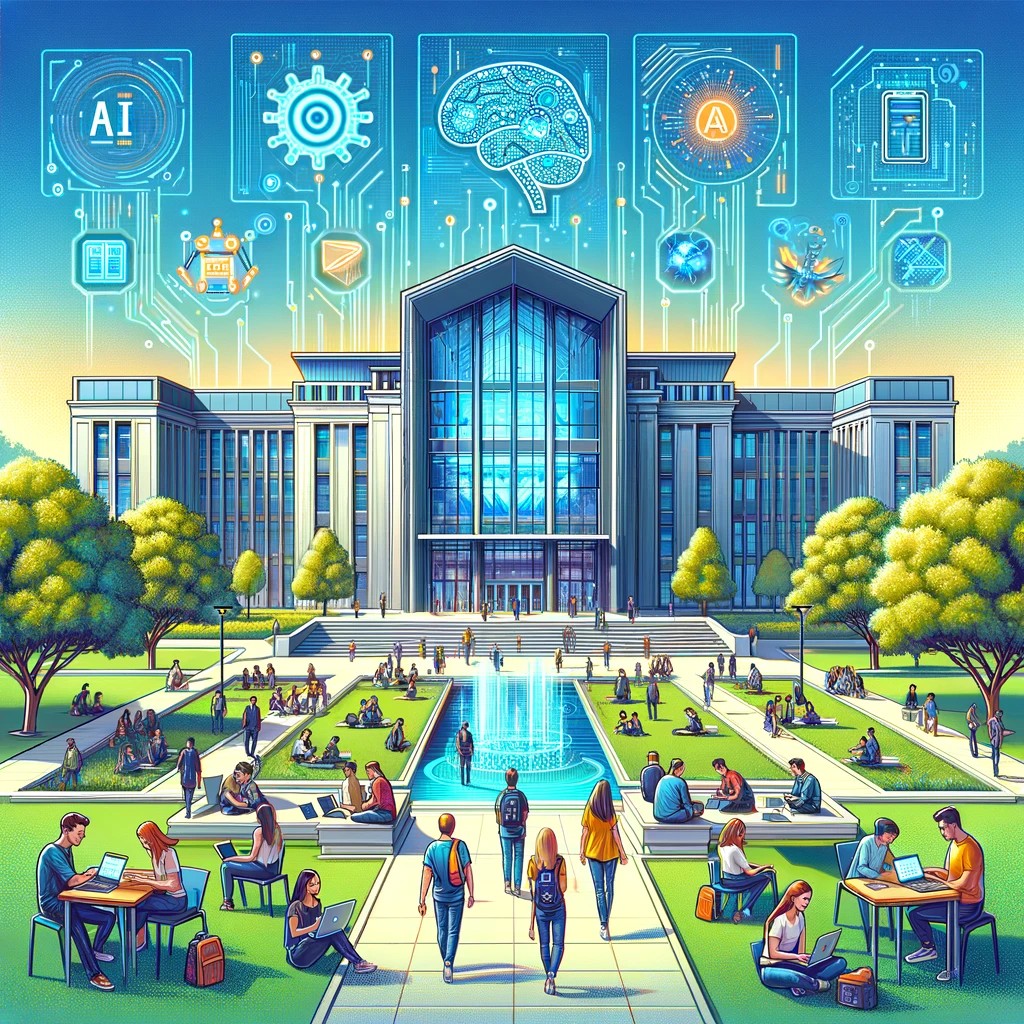In response to the escalating demand for artificial intelligence (AI) expertise and growing concerns about ethical issues like deep fakes and misinformation, universities are taking decisive steps to bolster AI education. With the proliferation of AI technology, institutions recognize the need to equip students with the skills to harness its potential and ensure responsible utilization.
Artificial intelligence is no longer confined to science fiction; it has firmly established itself in the real world. Companies across industries are actively seeking professionals who can develop and implement AI applications. From innovative product creation to safeguarding against cyber threats, the applications of AI are vast and multifaceted.
Brian Halbach, founder of the cybersecurity firm ‘Good Guy Hackers,’ underscores the urgency of having AI experts on board. He views it as a critical element in the struggle between good and evil, emphasizing the importance of integrating AI specialists to protect intellectual property and maintain cybersecurity.
AI education for ethical deployment
Recognizing the dual nature of AI—capable of both great good and harm—educational institutions are expanding their offerings to address the technology behind AI and its ethical deployment. Manjeet Rege, a Data Science Professor at the University of St. Thomas, is at the forefront of this effort. He emphasizes the need to educate students about the technology’s capabilities and its potential for misuse. Rege’s creation of fake videos using AI technology is a stark reminder that appearances can be deceiving, underscoring the importance of critical thinking in the digital age.
The ethical implications of AI extend far beyond the academic realm. Even the White House has voiced concerns about the proliferation of deep fakes and misinformation on social media platforms. White House Press Secretary Karine Jean-Pierre has called on these platforms to play a more proactive role in enforcing their rules to prevent the spread of false and non-consensual content. The administration believes that legislation is needed to criminalize the creation and sharing of explicit deepfake images. In this context, Minnesota has already passed a deepfake law, making it a crime to share non-consensual sexual deepfake images or use deepfakes to interfere with elections.
The need for ethical regulation
The expansion of AI education is about producing AI professionals and instilling ethical values in those who will shape its future. Manjeet Rege, echoing the sentiments of many in the field, believes that regulation is essential to control how AI technology is used, preventing it from falling into the wrong hands. As technological advancements continue, the dual nature of AI, with both beneficial and detrimental applications, becomes increasingly apparent. Educators like Rege hope to impart a deep understanding of these ethical complexities to their students.
In a world increasingly dominated by AI, there is a growing need for individuals who can navigate its intricacies while upholding ethical standards. The hope is that AI education, with a strong emphasis on responsible and ethical use, will make a difference. Brian Halbach, the cybersecurity expert, expresses optimism that a new generation of AI researchers will emerge, capable of combating unethical AI practices. This optimism is rooted in the belief that well-informed and ethically conscious AI professionals can act as a bulwark against the misuse of this powerful technology.






